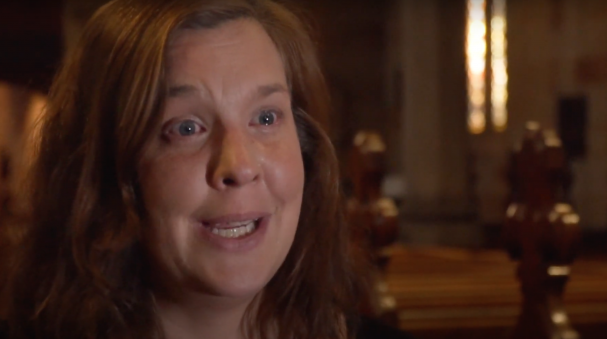Two millennia ago, in an ancient, arid, near-Eastern city, events occurred that changed the entire course of world history. These events unleashed a movement so compelling, so enduring, so influential, and so unstoppable that even today it continues to grow. This movement shaped nations, spanned oceans, transformed lives, and was spoken, read, and sung about in more languages than any other religious movement. And yet, at that time, only a handful of people knew what had occurred.
How did the word get out? Primarily through the eye-witness accounts of those who were close to Jesus. Those accounts are still being shared today.
The Women involved with the Easter Story
Women at the Cross is a play which tells the experience of the five key women who were eyewitnesses to the death and resurrection of Jesus. The performance was developed by five women from Newtown Erskineville Anglican Church, who read and reflected on the experiences of the woman who anointed Jesus, Mary the Mother of Jesus, Mary Magdalene, the Wife of Pilate and Joanna, and came together to share them onstage.
At a time when women's stories and perspectives are increasingly being called for in the media, it's helpful to note that the perspectives of women are central to the gospel narrative.
When I read this woman’s story, I had a profound sense of her longing: longing to be loved, to be wanted, to belong. I came to church as an outsider 14 years ago, sure that I would make some kind of faux pas. But the thing is, you can’t really make a faux pas with Jesus. He knows who you are and he takes you exactly as you come. The experience of being seen completely and loved unconditionally—that’s what I wanted to capture when I was writing this piece.
– Kamina Wust, wrote and performed 'Woman who anoints Jesus' in 2021
Originally intended to be performed last year, Covid restrictions meant the first rendition of the play took place online, viewed by over 2000 people. Last Easter weekend, Newtown Erskineville Anglican Church performed to an intimate crowd of 70.
While Women at the Cross is far from the first Easter dramatisation – many Churches continue to stage the Mark Drama or even screen The Passion of the Christ – we doubt it will be the last either. The events of Jesus’ life and death were compelling and dramatic. They show the character of God and his meaningful interactions with his people.
It is also compelling to hear the story from the lips of women. It provides a snapshot of the response to Jesus from those close to him.
There is a real hunger to explore this story
We often fear that nobody wants to hear about Christianity. While there may be a real antagonism to the message of the Bible, there is also real curiosity as well. What is it that is so powerful about the message that people would give up so much and follow Jesus? Why does our society still celebrate Easter the way we do? What is the real meaning behind the symbol of the cross?
The Women at the Cross does its best to answer these questions while also providing an entertaining night out. It is surely not the last of its kind.






















